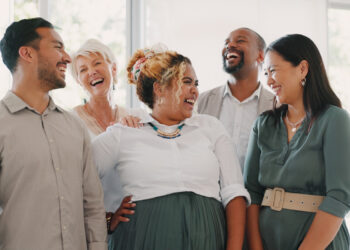Kiley Mutschler, a regional manager with Active Wellness, shares the importance of reflection before heading into the new year.
Reflection is a powerful tool to have in your wheelhouse. In fact, you likely participate in some form of reflective thinking more than you realize. Subconsciously or consciously, we tend to spend a fair amount of time reflecting on most of our decisions and our experiences. However, with the year coming to a quick end, there’s no better time than now to spend quality and purposeful time in reflective practice.
Reflection and recollection are great tools for mental health as research shows that looking back at happier memories or accomplishments can change the current state of your mental outlook. Reflective thinking is also a great tool to use within a team, going through shared experiences and lessons learned.
Here are some tools you can use with yourself and your team to do some reflection prior to the new year.
Remember
It feels as if life goes by faster every year and it’s easy to forget everything we accomplished or experienced within that time frame. This is why remembering is a valuable tool. It allows us to think deeply, strengthen our relationships and unite us despite other circumstances or differences.
When we remember, we are able to tell stories, share our experiences and even feel long lasting joy from recalling those memories. It allows us to recognize how many things were achieved, rewarded and experienced. What did you set out to do this year? Maybe you did not have a plan or defined goals, but still managed to accomplish more than you realized. Try to remember all the way back to January and start to write down everything you can recall that was significant for you, i.e. promotions, kids starting a new school, traveling to a new city, exceeding sales goals, books you read, etc.
Reflect
Now that you have recalled some memorable moments to mind, you can begin to reflect on those experiences. Which of those were successful or rewarding? Which caused you to reevaluate and pivot? How did you feel after each of those experiences? Did those memories make you feel happy, excited, optimistic or did they cause any stress? Acknowledge those emotions, remember how it made you feel and how you carried yourself through.
For the memories that brought you joy and peace, find a way to do more of that going forward. But even if a memory recalled resulted in stress or chaos, try not to view it as a negative response. View it from a place in which you move into the next step of the process, learning from those experiences.
Learn
Continuous learning is one of the best things we can do for ourselves and our team. Through reflective thinking, we can spend dedicated time evaluating the outcomes and sharing in the lessons learned. By asking yourself, “What did I learn from this experience?” whether pleased with the outcome or not, you can begin to implement best practices for future outcomes.
Being open to learning in both success and in failure allows for you to share those lessons with others. People will remember you for those moments of both accomplishment and adversity and how they were handled. Being vulnerable to learn, change and adapt will benefit you and your team going forward.
When all is said and done this practice of reflective thinking also ties into gratitude. Use this practice to shift your perspective into one of gratitude, for everything, regardless of the outcome. When we can be grateful for even the failures in life because of the lessons we learned, we can learn to handle adversity and lead ourselves and our team towards greater success in 2024.










